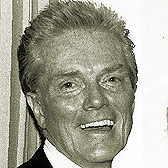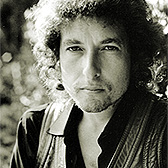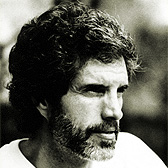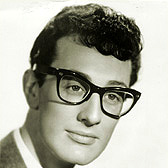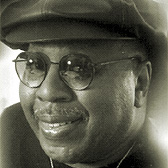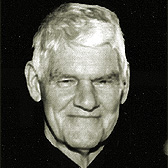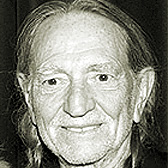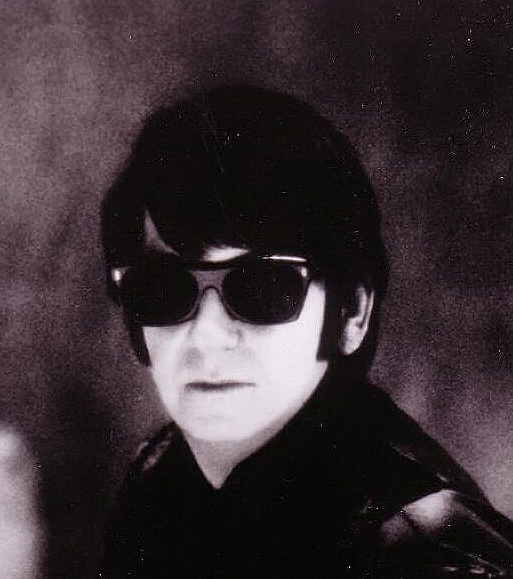
His songs and his voice entwined to make timeless hits
Roy Orbison
InducteeHis career spanned 1950s to his death in 1988
Roy Orbison ranks as one of the most popular and well-respected hitmakers of the rock and roll era. His three-octave voice put him in a class by himself and his heartfelt, sometimes emotional songs, made him a master of his craft. His musical influence began early in his life while growing up in the small Texas town of Wink. He learned to play the guitar when he was a child and was singing country songs on the radio at age eight. As a teen, he began touring the dance halls of West Texas.
In his early twenties, Orbison heeded the advice of a friend, Johnny Cash, and visited Memphis to meet Sam Phillips, the proprietor of a hot independent recording firm, Sun Records, who had already produced hits for Elvis Presley, Johnny Cash and Carl Perkins. Orbison recorded a number of single releases for Sun, including his first significant hit in 1959, "Ooby Dooby."
Orbison then moved to Nashville and signed with Monument Records. Over the next six years he would write a string of renowned hits beginning with the classic, "Only The Lonely" in 1960. Others included "Blue Angel "Candy Man "Running Scared," "Crying," “Mean Woman Blues," "Dream Baby," "Blue Bayou," "It's Over" and "Oh Pretty Woman."
During this period, Orbison enjoyed incredible success both in the U.S. and in Britain, where he toured with the Beatles as his opening in 1963. His adulation abroad remained constant throughout the 60s. In fact, during the earlier phases of the "British Invasion" of American pop, Orbison maintained his popularity on both sides of the Atlantic and for a period of 68 weeks, commencing in August of 1963, he was the only American performer to enjoy #1 singles on the British charts: "It's Over" and "Oh Pretty Woman" in 1964.
A major career resurgence began for Orbison in the 80s: He toured with the Eagles on their "Hotel California" tour; Linda Ronstadt had her only gold-selling single with her version of "Blue Bayou." A duet with Emmylou Harris, "That Loving You Feeling Again, won the pair a Grammy. Don McLean re-recorded "Crying"; Van Halen had a hit with "Oh Pretty Woman;" "In Dreams" was featured in David Lynch's 1986 underground classic film, "Blue Velvet."
From this point, Orbison enjoyed almost three years of precedented recognition. He signed his first recording contract in ten years with Virgin Records. In 1987 he was inducted into the Rock and Roll Hall of Fame. Later that same year, he and singer k.d. lang recorded a duet version of "Crying" for the soundtrack to the film "Hiding Out" and their recording went on to win the pair a Grammy in 1988. In January of 1988, Orbison starred in the HBO/Cinemax cable TV special, Roy Orbison and Friends: A Black and White Night, in which his backing band included Bruce Springsteen, Tom Waits, Elvis Costello, Jackson Browne, k.d. lang, Bonnie Raitt, and T-Bone Burnette.
Early in 1988, Orbison began recording sessions for his first album of all-new material in ten years. The album, titled Mystery Girl featured a host of noteworthy collaborators including T-Bone Burnette, Bono and The Edge, Tom Petty, Jeff Lynne, Will Jennings, and others. It was while Orbison was working on Mystery Girl that Petty, Lynne, Orbison, George Harrison and Bob Dylan turned a single song collaboration, "Handle With Care," into the much-heralded band and album called The Traveling Wilburys.
Virgin's Mystery Girl has sold over three million copies worldwide and has reached #1 in seven countries, marking Orbison's highest-charting album ever. The Traveling Wilburys’ self-titled debut album has also sold more than two million copies.
On December 6, 1988, Roy Orbison died at the age of 52 and the world lost one of its finest musical talents. Orbison's voice and incomparable songwriting were pivotal, as well as unmatched, in the development of rock and roll. He touched the hearts of millions of fans around the world, and his songs brought new sensitivity and depth to contemporary music.


